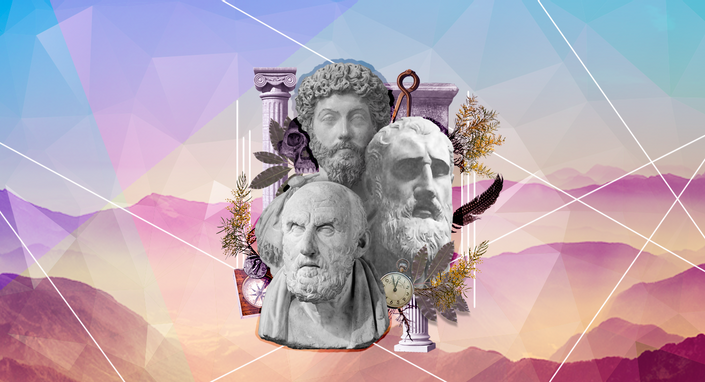Wishing a healthy and productive New Year to all readers of Stoicism Today!
With a new year come reflections about where we’ve come from, and where we’re headed. On that basis, it has seemed like a good opportunity to invite contributions for a Symposium in the first weeks of 2024. Previous Symposia have featured contributions on themes such as Stoicism and Passivity, Stoicism and Courage, and The Stoic God.
Stoicism: Evolving Understandings
For many of us, our first exposure to Stoicism may have been through a personal difficulty or crisis. Some may have learned about the philosophy through one of the many popular outlets online, or happened to read some Seneca, Marcus Aurelius, or Epictetus by chance. Maybe a friend or relative recommended a Stoic author, ancient or modern.
Whatever the initial circumstance, our views on Stoicism may have evolved since that initial experience – and that’s what we’d like to explore with our readers.
The symposium format means that we publish groups of contributions over several Saturdays (not necessarily consecutive). In 2024, we would like to invite contributions (of length 400-1200 words). Potential topics could include the following:
• How I discovered Stoicism – and how I feel about it now
• Comparing personal experience of different Stoic communities (in-person or online), e.g.
• The ‘Broic’ community
• ‘Traditional Stoic’ communities
• In-person versus online groups
• Topics where difficulties arise in translating Stoic ideas into modern contexts, e.g.
• Stoic ideas around grief and consolation
• Practising virtue in the 21st century
• Changing views around a providential cosmos
Some experiences will be more positive than others, but the point of this symposium will be better understandings of how our communities work – and how we can all help them to work better for our global cosmopolis.
As always with contributions to Stoicism Today, please ensure that you:
• Double-check that any references to ancient works are accurate. We do check these before publication, but it saves time if we can be confident that the author has made the effort to check the original work in a reputable translation. It’s all too easy to transpose reference numbers – e.g. Meditations 12.5 can appear as 5.12 if care isn’t taken.
• Transliterate Greek words into English please.
• Take note of the general submission guidelines.
• Email your contribution to Harald Kavli and Judith Stove and judith.stove@gmail.com as soon as possible – we would like to start publishing our first instalment in coming weeks!
Discover more from Modern Stoicism
Subscribe to get the latest posts sent to your email.




